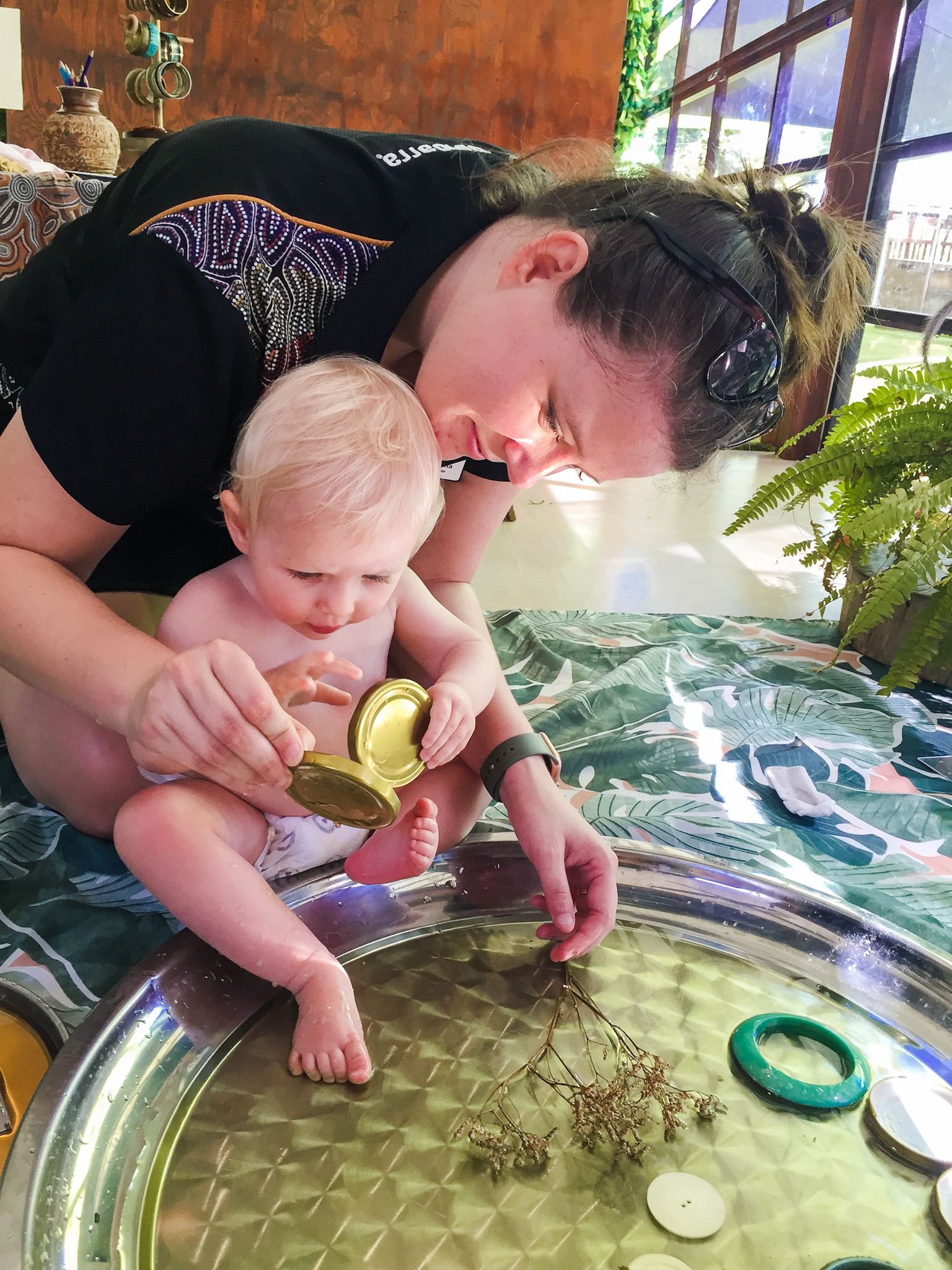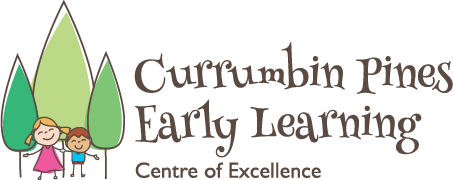Belonging, Being and Becoming: The Early Years Learning Framework for Australia (2009)
This is a new national early learning framework for children from birth to five years.
The Federal Government has developed the Early Years Learning Framework to ensure your child receives quality education programs in early childhood settings. This is a vital time for them to learn and develop.
It is a guide for early childhood educators who work with children from birth to five years. They will use the framework in partnership with families, children’s first and most influential educators, to develop learning programs responsive to children’s ideas, interests, strengths and abilities and recognize that children learn through their play.
The Early Years Learning Framework describes childhood as a time of belonging, being and becoming.

Belonging
BELONGING is the basis for living a fulfilling life. Children feel they belong because of the relationships they have with their family, community, culture and place.
At Currumbin Pines Early Learning we see belonging:
As an INDIVIDUAL
- Knowing where and with whom we belong.
- To feel a part of the community I’m in whether it be at home, centre or neighbourhood. Feel comfortable and at ease.
- Knowing who you are as a person. What groups you belong to and your place in society.
- Being made welcome in a group.
As an EDUCATOR
- Being part of the childcare service and being a support system to families.
- To feel part of my workplace, centre, room. Feel comfortable to be myself and to feel valued a part of a small community.
- Feeling like we belong to a room or group of children and sharing a special bond with our children – watching them grow.
- Feeling part of a professional group of like minded people.
Through the eye of an Infant (0-2 years)
- Feeling loved and supported.
- To feel secure, comfortable, looked after. To have a strong sense of wellbeing.
- Feeling close/connected to their carers and safe in their care.
- Feeling safe and secure with those people who look after them.
Through the eyes of a Toddler (2-3 years)
- Feeling like a part of something and having it shown e.g. artwork displayed.
- To feel supported emotionally, welcomed by educators, to feel a part of their environment.
- Developing friendships with other toddlers – participating in room activities and learning together.
- Being made to feel part of a group and safe with their educators.
Through the eyes of a Pre schooler (3-5 years)
- Discovering friendships.
- To feel welcomed, wanted, a valued part of the preschool room. To feel supported emotionally.
- Feeling part of their group – sharing stories during show and tell, having art on the walls and feeling like they are involved.
- Having close friends that they feel connected to.
Through the eyes of Afterschool Care (5-12 years)
- Maintaining meaningful friendships.
- To feel welcomed, wanted, a valued part of the Afterschool care environment. To be respected by their peers and educators.
- Being made to feel valued in a group.
- Being involved in activities, sharing stories with their peers, participating in concerts, having their art on the wall, feeling like they belong and feeling comfortable.
Through the eyes of a Family
- Feeling that the family unit is more important than anything else.
- Being part of a group that is based on love.
- Being involved with their centre, coming along to centre functions, Christmas parties/concerts.
Being
BEING is about living here and now. Childhood is a special time in life and children need time to just “be” – time to play, try new things and have fun.
At Currumbin Pines Early Learning we see being:
As an INDIVIDUAL
- Doing as I want.
- Knowing who I am.
- Being part of your surroundings and environment.
- Feeling happy with where I am as an individual with my life.
As an EDUCATOR
- Teaching and caring for our babies.
- Enjoying being in the moment, being part of a child care setting.
- Confidence in knowing I do my job to the best of my ability.
Through the eye of an Infant (0-2 years)
- Discovering the world and exploring the environment.
- Enjoying spending time with peers and educators, being in the moment.
- Feeling safe in their environment to conquer milestones.
Through the eyes of a Toddler (2-3 years)
- Trying new things out, understanding and experimenting with cause and effect.
- Being able to grow into their own individual person.
- Having a safe and secure environment to grow and learn.
Through the eyes of a Pre schooler (3-5 years)
- Using your imagination to seek and make meaning of the world.
- Forming friendships with peers enjoying their play.
- Feeling confident and nurtured to learn in their environment.
Through the eyes of Afterschool Care (5-12 years)
- Setting and accomplishing new challenges.
- Taking part in enjoyable interactions with peers, educators. Feeling they can be themselves and feel valued.
- Enjoying being in the moment.
- Being made to feel confident and to express themselves in their environment.
Through the eyes of a Family
- Sharing experiences, going through changes together.
- Being part of their children’s development, building relationships with their child’s educators.
- Being supportive of one another.
- BECOMING is about the learning and development that young children experience. Children start to form their sense of identity from an early age, which shapes the type of adult they will become.
Becoming
At Currumbin Pines Early Learning we see becoming:
As an INDIVIDUAL
- Aspiring to be something and working towards it.
- Adapting to changes and experiences. Learning who they are through different learning experiences.
- How I can become a better person.
- Where you see yourself in years to come and what you will do to get there.
As an EDUCATOR
- Being in tune with what our babies want to do and facilitating it.
- Becoming the best I can professionally be as an educator. Constantly using reflective practice.
- How can I better my skills and pass on my knowledge to the children.
- How you grow into bettering yourself as an educator.
Through the eye of an Infant (0-2 years)
- Feeling secure and loved and being able to play and develop under the guidance of caregivers.
- Learning the foundations of life through educational milestones, “discovery”.
- Going through the milestones of growth.
- Learning new skills – crawling, standing, walking, talking.
Through the eyes of a Toddler (2-3 years)
- Feeling confident with developing autonomy and being able to take risks in exploration and play.
- Exploring new experiences in their new capability spectrum e.g. walking, what they can reach.
- Getting confidence to try new things for self.
- Discovering boundaries, talking more, communicating wants and dislikes.
Through the eyes of a Pre schooler (3-5 years)
- Having the opportunity to make choices in play and learning experiences and having their thoughts valued with peers and educators.
- Ideas of what they “want to be when they grow up” – comes from experiences in different environments.
- Learning and becoming an individual with definite likes and dislikes, personalities blooming.
- Readiness for school – feeling confident in who they are.
Through the eyes of Afterschool Care (5-12 years)
- Becoming responsible, developing meaningful friendships, feeling valued by peers and having a voice.
- New and exciting activities that stimulate the body mind appropriate to their age.
- Figuring out who they are.
- Becoming an individual whilst trying to remain part of a group.
Through the eyes of a Family
- Loving each other unconditionally, being there for each other through all walks of life.
- Growing together through different milestones, experiences and activities.
- Readiness for school – feeling confident in who they are.
- As families grow and change becoming one unit full of love and trust.
Play is Learning
Play is very important for children. Through play babies and young children explore and learn to understand the world around them as they come to communicate, discover, imagine and create. When children play they are showing what they have learned and what they are trying to understand. This is why play is one of the foundations of the Early Years Learning Framework. By using this framework, educators will guide your child’s play by carefully designing learning activities and stimulating indoor and outdoor learning environments.
Relationships are Key
It is well known that children learn best when they have secure relationships with caring adults. When children from a very early age develop trusting relationships they feel more confident and able to explore and learn. Currumbin Pines Early Learning embraces the fact that when children feel emotionally secure they learn through play to develop the skills and understandings they need to interact positively with others and gradually learn to take responsibility.
The framework focuses on your child’s learning. Educators will work with you in order to get to know your child well. They will create a learning program that builds on your child’s interests and abilities, and keep you in touch with your child’s progress.
Through the framework’s five learning goals educators will assist your child to develop:
- a strong sense of their identity
- connections with their world
- a strong sense of well being
- confidence and involvement in their learning
- effective communication skills.
Working Together
By working together with families, educators can enhance a child’s learning and well being. As the most important person in your child’s life you can make a difference by talking regularly with your child’s early childhood educator and asking about your child’s learning. Information you provide allows educators to link your child’s experiences at home with the time they spend together in the early childhood setting.
To find out more visit www.deewr.gov.au/earlychildhood
